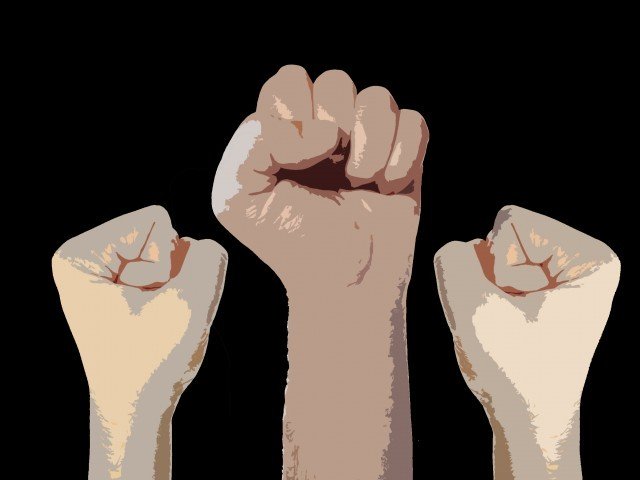
Niaz Khan of the National Trade Union Federation this week addressed dozens of young workers at Awami Bethak in Chungi Amer Sidhu.
Khan spoke to them about the legal framework of contract work, its potential for exploitation and how workers could obtain legal help. He shared stories of how some other workers who were able to obtain rights and benefits through collective bargaining.
Dozens of men under the age of 20 attend thematic discussions at the bethak every week.
Most of them work in nearby factories on contract jobs. Many of them have completed primary education and some have passed matriculation.
Ahsan Bhatti, who runs the bethak, told The Express Tribune that the bethak, which included a cafeteria, a library, a classroom and a discussion room, was an initiative of the Community Support Concern and Umeed-i-Jawan.
“It was launched a few months ago and has become a popular place to hang out for scores of people,” he said.
“They visit daily to hold discussions over biryani or to read books,” he said.
Bhatti said he got involved in the project because there was a dire need for a community centre in the area.
“Most of the youth are employed in factories carry the financial burden of their households and it’s a bleak existence,” he said.
There is no avenue for recreation – no parks, cinemas or sports arenas. Many turn to drugs and drinking, Bhatti said.
“A lot of the youth use their savings to buy narcotics. This is where, I hope, the bethak can make a difference,” he said.
Over the last two months, the Awami Bethak has organised several activities for students and working youth of the area.
They have started a debating club which held its first competition last week and a study circle that meets regularly.
A lot of students come to the library to do their summer homework or read books on politics.
This Saturday, a documentary on Malala Yousafzai will be screened.
Community Support Concern executive director Shaista Khalid Jan told The Express Tribune they had envisioned the project in view of the shrinking public space and dearth of healthy activities for young people in low-income areas.
“We thought of a community centre where young people could read books, discuss community problems and come up with solutions to those problems.”
She said they had added a cafeteria to the project so that it could become self-sustaining.
Published in The Express Tribune, June 12th, 2015.
1719660634-1/BeFunky-collage-nicole-(1)1719660634-1-405x300.webp)

1732276540-0/kim-(10)1732276540-0-165x106.webp)

1732274008-0/Ariana-Grande-and-Kristin-Chenoweth-(1)1732274008-0-165x106.webp)
1726722687-0/Express-Tribune-Web-(9)1726722687-0-270x192.webp)











COMMENTS
Comments are moderated and generally will be posted if they are on-topic and not abusive.
For more information, please see our Comments FAQ